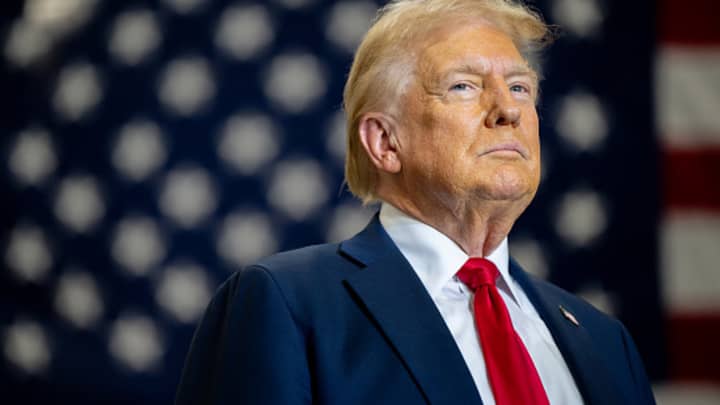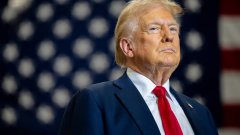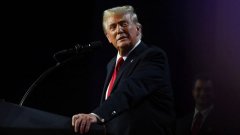
It also represents a staggering political achievement for Trump's running mate, Sen. JD Vance of Ohio, who won his first election just two years earlier.
Just 40 years old, Vance, a former Trump critic turned loyalist and top advocate for the president-elect's right-wing populist movement, is now first in the presidential line of succession.
If Trump pursues his campaign promises, his second administration will soon set out to enact an ambitious, controversial agenda centered on deep tax cuts, mass deportations and reshaped relationships with foreign leaders.
Trump has also vowed to impose heavy tariffs, claiming that they will simultaneously boost U.S. revenues, strengthen domestic industries and deter unwanted foreign competition.
Mainstream economists have repeatedly warned that the tariffs, which are taxes paid by U.S. importers, will raise prices on American consumers.
It remains to be seen to what extent Trump's presidential agenda will resemble the sum of his many claims as a candidate.
He has vowed to pardon his supporters who violently rioted at the U.S. Capitol on Jan. 6, 2021.
He has assured that he will quickly broker an end to Russia's invasion of Ukraine, a vague stance that threatens to undo the Biden administration's policy of strong support for Kyiv.
He has said he would put Robert F. Kennedy Jr., a vocal vaccine skeptic, in charge of health policy, and tap billionaire Tesla CEO to propose trillions of dollars in government spending cuts.
He has denied Democrats' warnings that he will behave in office like a dictator, "except for Day One."
The campaign that delivered Trump's election was no less historic.
Trump survived an assassination attempt in mid-July, when , a 20-year-old registered Republican who had donated to a Democratic group, opened fire with an AR-15-style rifle during a campaign rally in Pennsylvania. Crooks fatally shot one rally attendee, and one of his bullets grazed Trump's ear, streaking his face with blood.
Trump's immediate reaction to the shooting — pumping his fist and defiantly telling his supporters to "fight!" as Secret Service agents rushed him off stage — instantly became a defining moment of the campaign.
Just a few days later, the race was shaken up again.
In late July, Harris, 60, was catapulted to the top of the Democratic presidential ticket after Biden announced he would no longer seek reelection.
Biden's stunning decision, which made him the first incumbent president since Lyndon Johnson to voluntarily end his White House stay, was one he had initially resisted.
The 81-year-old and his allies, including Harris, had vociferously defended his physical and mental fitness for four more years as president.
But a simmering undercurrent of Democratic uneasiness dramatically boiled over after a shocking debate performance in late June, when a frail and distracted-looking Biden delivered raspy, halting and inarticulate answers versus Trump.
Less than a month later, amid a collapse in internal support and dwindling poll numbers, Biden ended his campaign and backed Harris as his replacement.
The switch effectively reset the race, forcing Trump to throw out many of his well-rehearsed attacks and adapt to an opponent unburdened by Biden's most glaring weaknesses.
It wasn't a seamless transition: Harris bested Trump in the candidates' one and only debate in mid-September, and Trump declined her repeated challenges to face off again.
But polls gradually showed the race tightening, as Trump's campaign worked to blame Harris for the inflation and immigration woes that had dragged down Biden's approval ratings throughout his presidency.



